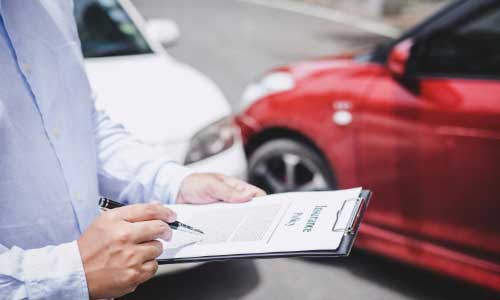800 800 001
Best Car Insurance in UAE
Some of the best and the cheapest car insurance quotes in Dubai are:
Buying a car is an exciting, yet sometimes a lengthy process. You have to figure out the brand, model, all the payment options and last but not least, the insurance components attached with it. It is a known fact that the model, brand and type of car can make a huge impact on the price and components of your car insurance plan. Another thing to ponder over is that the way you have bought your car insurance plan can also make a huge difference in the car insurance plan that you buy. This means that your car insurance plan may have different elements and coverage depending on whether you got it financed or bought it using one-time payment option. Let’s talk about how your car loan or the lenders can affect your auto finance insurance plan in the UAE.
Minimum Car Insurance Requirements in the UAE
Car insurance, like in many countries around the world, is mandatory to have at all times in the UAE. However, it is not necessary to have the highest available coverage to fulfil the legally set car insurance requirements. The mandatory insurance required in the Emirates only includes a proper third-party liability plan. This car insurance plan shall cover all third-party liabilities arising in the event of an at fault accident. This can include bodily injuries as well as damages incurred by the third-party vehicle.
How Does Car Financing Work?
Car financing is just like financing any other tangible asset from a lender such as a financial institution or a bank. The most you can get when it comes to car financing is an 80-20 ratio, where 80% is the maximum part of the car cost that the lender will cover and 20% is the down payment that the owner covers. Some lenders go above and beyond and may increase this ratio to 90-10. But that is highly unlikely. The financed part of the car price is to be paid over a maximum tenure of 60 months or 5 years. Owners can decide their tenure as per their convenience and payment capacity.

What Are Financed Car Insurance Requirements?
Despite the already available mandatory guidelines for car insurance in the UAE, your lender may set additional minimum insurance requirements for your financed car. Most car loan providers want to ensure that vehicle is covered for any plausible so that their money is not at cost. Following are the most common elements that car loan providers generally ask the car owners to get in their auto finance insurance plans:
- Comprehensive Car Insurance Cover: A comprehensive coverage for your car would ensure that it is protected from threats like theft, fire, damages from vandalism and other man-made disasters, floods, storms and other natural disasters, liabilities against hitting animals, etc. Your vehicle is technically protected from all accidental or inconsequential damages with a comprehensive car insurance plan.
- Collision Cover: A collision cover is generally offered in combination with the comprehensive car insurance plan, which is the case for most car insurance providers in the UAE. A collision cover covers the damages caused to your vehicle if it happens to collide with something. This can include parking cones, a wall or anything that can not be held liable for the collision.
- Third-Party Liability Cover: A basic cover that is required for every car in the UAE by law, the third-party car insurance cover will take care of all third-party liabilities related to bodily injuries and vehicular damages.
- Personal Accident and Injury Cover: A personal accident cover is used to take care of the injuries of the driver or passengers in case of an accident. It also offers death and disability benefits. Some comprehensive car insurance may include this as a basic benefit while others do not.
- Uninsured or Underinsured Motorist Cover: It is a possibility that the other vehicle you have an accident with does not have insurance or have a significantly lesser assured sum. Underinsured motorist coverage is a type of insurance to handle damages in such a situation when the driver at fault can not handle insurance costs immediately.
Auto Financing and Gap Insurance
Apart from the types of insurance covers mentioned above, some car loan providers may also ask you to get gap insurance along with auto finance insurance. Gap insurance is a type of general insurance that comes in handy when your financed car is totalled before you were able to pay off the loan. The value of a car depreciates as soon as it is out of the showroom. There comes a time when the current market value of the car is lower than the loan amount you still owe to the lender. If your car is totalled in such a situation, the insurance money will not be able to cover the remaining loan amount of the car. Gap insurance steps in here and covers the gap between the due loan amount and the insurance payout of the car so that you do not have to pay it out of your pocket.
Related Article: Gap Insurance vs Comprehensive Car Insurance – An Overview
Do Car Loans Increase the Price of Car Insurance Directly?
The truth of the matter is that car loans or financing do not increase the price of car insurance plans directly at all. Your insurance company is going to sell you the plan at the same rate, whether you get it financed or buy it with cash. Although, the requirements laid down by car loans providers for car insurance plans can increase the premium price for you a lot. You may have decided to not take gap insurance or underinsured motorist insurance if the lender had not made it a pre-requisite. But since it is a requirement now, you will have to pay for these additional covers as well. The overall price of your car insurance increases several folds just because of the financed car insurance requirements set by the lenders.

What Happened If You Forget to Pay the Premium?
Now, let’s discuss a very important thing – expired car insurance plans. A seemingly troublesome thing, expired car insurance plans are pretty common. It is very natural to forget to pay your premium or miss the deadline by a hair. Normally, you would be able to simply buy the coverage again from the top and continue. However, when car loan and financing is involved, the situation can be different. Whenever you buy your car insurance plan on a financed or leased vehicle, the lender signs of as additional insured on the plan and becomes a payee. This means that they will be notified as soon as your car insurance expires. Here, the lender can decide to buy the car insurance themselves and add the price of the premium to the loan amount. Or they can even decide to repossess the vehicle.
What Are Your Options After You Pay Off the Car Loan?
Once you have paid off the loan completely, you will be free of these financed car insurance requirements and the obligation to meet them. After that, you can simply re-evaluate your car insurance plan and choose the coverage again. Take your time, compare the available options and choose the one that suits the current situation and condition of the car the best. Even though UAE standards only require you to have a third-party liability cover, do not drop down suddenly from very comprehensive coverage to the most basic one. If the value of your car is rather low, it only has a year or two left, and you do not drive it very often, third-party insurance can be a good choice. But all other scenarios require thorough research and analysis.
What Can You Do Cut Cost with Auto Finance Insurance?
Try these below-mentioned pointers to cut the cost of your auto finance insurance plan:
- Shop Around a Little and Compare: Comparing prices can go a long way. Always go ahead and score a few quotes before you finalise anything related to your car insurance plan. See which provider can give you the best price for the benefits and choose them.
- Choose High Deductible Plans: Higher the deductibles in the plan, the lower the premium will be. But be careful when choosing deductibles. You won’t be able to change the ratio before renewal. So, only choose the amount you can afford to cover in case of an accident.
- Go for Bundling: Many insurance companies offer bundled insurance plans where they combine two types of general insurance such as home and car. Choose such an arrangement to get an additional discount on both car and other types of insurance in your bundle.
- Look Out for Mileage and Other Vehicle-Related Discounts: Many providers offer discounts on premiums for cars that are driven less. If you do not drive your car too much, you will be able to score some great discounts based on the used mileage of the car.
- Maintain a Spotless Driving Record: UAE does everything possible to promote safe driving and insurance premium discounts is one of these things. A bad driving record will increase the price of your car insurance plan while a spotless one will earn you discounts.
- Improve Your Credit: Good credit means that you are a responsible person who knows how to handle finances. It reflects well on your part when it comes to auto finance insurance as well.
In a Nutshell
Financed car insurance requirements sure are different from the general ones. But the situation calls for these standards. A lender takes several measures to protect their money and getting the proper insurance is just one of them. All you need to do here is pay off the loan as soon as you can and make sure to take advantage of the tricks that can lower the auto finance insurance price for you. After that, you can change the cover as per your choice and requirements.
More From Car Insurance
- Recent Articles
- Popular Articles

























